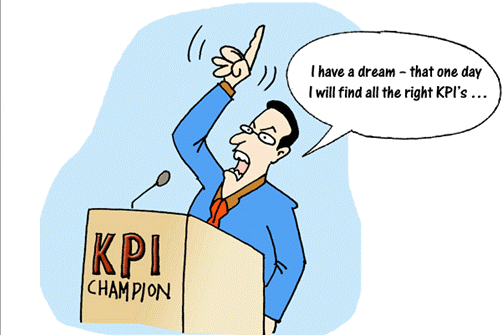KPIs or Key Performance Indicators are essential measurements in marketing in determining how successfully your actions are that you are taking with your marketing. Are you content marketing efforts increasing the amount of leads that you are driving into the funnel? Is your cost per lead becoming excessive in certain areas? Or most importantly which marketing campaigns are generating a high ROI?
KPIs help show the performance of your marketing campaigns; yet, theres an entirely new side to these key performance indicators — your competitors’ marketing.
The KPI’s of Competitive Intelligence Marketing follow some of the same suite as the overall general marketing KPIs, but looking at a competitive KPI will help you outline your overall business landscape, what is working and what isn’t working for you vs. your competitors.
Paid
1. Paid Ads
This KPI requires a little more work or luck happen stance; however, it provides a pretty useful KPI when looking at your competitors. Some platforms can help you with this, but I don’t want to start shamelessly plugging TrackMaven…on the TrackMaven blog. So digging a little more first, you can use some other tools to see where your competitors are posting ads and the number of ads that were spotted by the tool. Did your competitors just release 100 banner ads to all of the major media sources? What did the ad look like or why were the ads all posted in Forbes? Is there targeted audience there and are they more likely to click on that ad? Granted these are some broad questions and could result in false assumptions; however taking just the quantity of ads and where they are posting are indicators of how their ads are performing. If there 20 ads on x site, maybe it’s an indication that’s where their potential audience is and how they are attracting leads.
The other side of just happening to see an ad, could be in terms of the social advertising on Facebook, Twitter or Linkedin. Maybe you saw an ad on Facebook from one of your competitors. So what is your own title that you put on Facebook, what company do you work for, what are your own demographics? Breaking down the ad a little could indicate the audience they are targeting, if they are targeting people who work or “like” your brand. This could point to an audience shift, do you fit the customer they are now trying to target? You can find some of these metrics by trying an ad yourself. Go to the ads manager and put in the answers to the questions above. You can make a pretty good educated guess on how many people they are trying to target with the ad, a KPI that could help you see how your own audience stacks up.

Owned
1. Social Media
How many times a day are your competitors tweeting? Posts on Facebook? Did you see yesterday that they had 10 followers and now they have 1,000? Looking at those different values and the potential conversations on social media can indicate if they have ramped up their social media marketing, ff they are successful in the number of social shares (ie. number of retweets, replies, comments or shares they are getting per post), and if this higher than usual activity is helping them with their overall brand.
2. SEO and Keywords
Did they change some of their headlines on their website? Are they now ranking for a keyword you are trying to rank for? How many times do they mention this keyword? This isn’t a secretive process. You can answer all of those questions with quick searches to determine the things above to see how they are performing and if it’s something you need to to potentially shift your focus to. I’m not saying that if they have 20 new words on their site you should change your own keywords, but let’s say they start outranking you in searches for your own keywords because they shifted theres with the amount of volume they are now outputting with various blog posts, white papers etc around that keyword, maybe you should increase your output to continue to rank for that keyword.
3. Other Content Marketing
Are your competitors releasing white papers every week? Do they have a blog post going up every Tuesday and Thursday? Or are potential customers sharing their posts? You won’t be able to see how many people have downloaded your competitors’ white paper or who is downloading it (unless they publicize that type of information); however, you can see if they post new content, what day they post it and possibly the social shares for the pieces of content. Overall, you’ll see the scheduling framework of their editorial calendar and if they continue this pattern for several months, maybe it’s something that is working for them, especially if their comment and social shares are high.

Earned
1. News + Press Mentions
Were your competitors featured in a news article? Have they gotten multiple press mentions this week? How many? Tracking what is going on with your competitors on News and PR are good indicators to monitor for your competitors performance. So why did your competitors have 10 mentions in the press this past week? Maybe they released a new feature, hired someone new, or are they tanking? Seeing a higher volume in the number of times they were mentioned in the press could indicate some type of big change that you need to be aware of with your competitors.
2. Word of Mouth
Word of mouth is a very valuable metric because referrals through a simple reference or “word of mouth” convert faster than any other sale. Think about it, if you were referenced over by a friend who told you that you just had to try so and so product, there is a high probability that you would try it. Word of mouth isn’t easily measured, you could search for who is tweeting at your competitors or you could try or who is commenting on their blog posts, but that isn’t entirely how I think of this KPI. Looking at word of mouth, requires a little help from your sales team because it’s literally what is said from the potential customers’ mouth. When you are giving a potential customer a demo or reaching out to them in some way, you can always assess to see if they have evaluated competitors as well.
For example let’s say you are working for Coca-Cola and you are going around with tastings of a Coca-Cola, but then you ask the potential tasters if they have had anything besides Coke. You could then identify who else would affect their bottom line in purchasing your product, what their possible concerns are with your competitors that they decide they may go with and how you could solve those concerns with your product. You could then see if they potentially tried other products, what made them decide they needed to see the other options as well? If potential customers constantly mention that they have seen x, that’s definitely an key indicator that you should measure. You can then cater why what you are offering is stronger or what you have over competitors. There’s an element of transparency that is required from your potential customers, but it also gives marketing a competitive advantage effecting how to market your product over your competitors.

Benchmarks
With the various KPIs above, they all help to determine some benchmark insights potentially showing some of the things working for your competitors and where you maybe should spend some more time on. Granted you can’t see the inner workings of their marketing and can’t get inside of your competitors heads, but you can see more pieces to outline your competitive landscape. Maybe you need to start scheduling your own posts at a different time, you need to be a little more conversational on social media, or you need to strengthen some of your SEO efforts, you really wouldn’t know any of this without two things 1. The amount of customers/your revenue or 2. how you stack up with your competitors. Your benchmark insights are the most important key performance indicators in this set of KPIs because they highlight where you are winning and losing in your marketing versus your competitors. These benchmarks give you insight on areas where you are strongest and where your competitors are just straight beating you at.
One of my favorite Jeff Besos’ quotes is “Don’t focus on the competition, they’ll never give you money.” Well that is somewhat true, but Mr. Besos their customers WILL give me money if I can competitively market to them the right way.
Source: TrackMaven's Competitive Intelligence Blog







